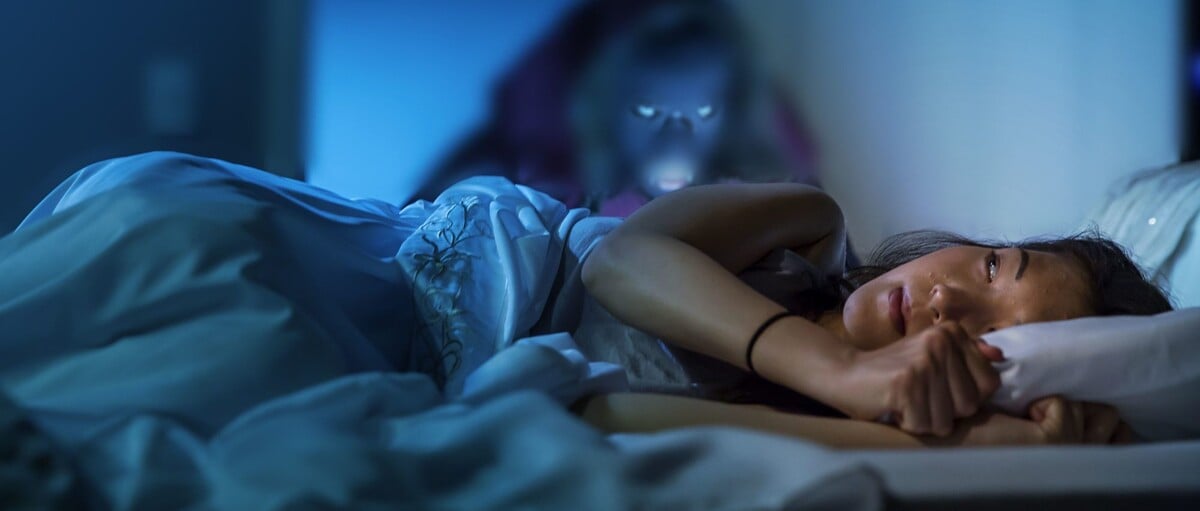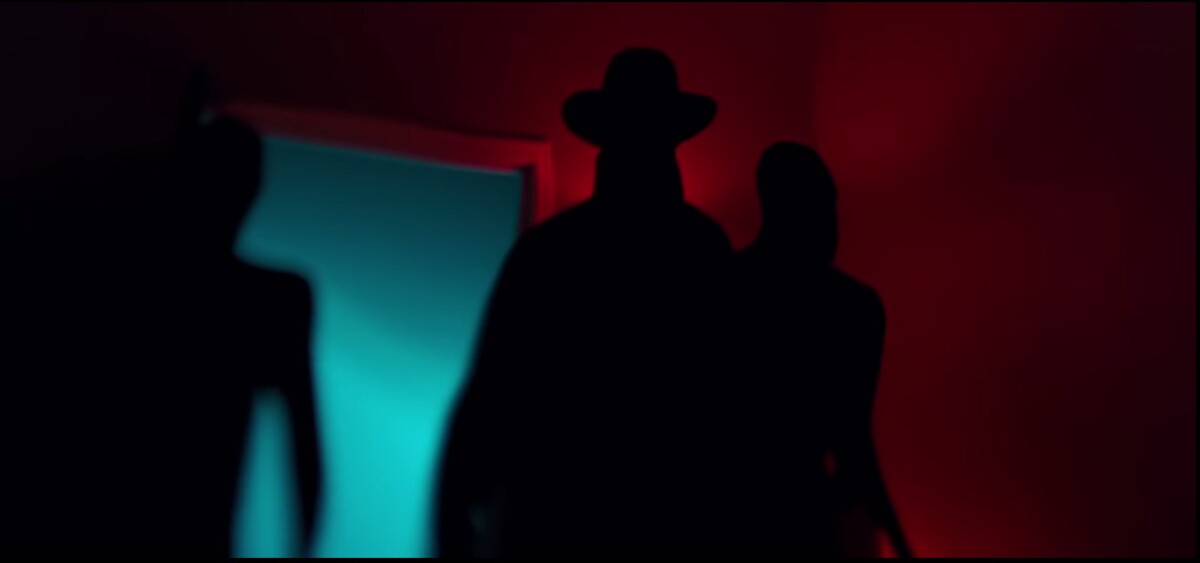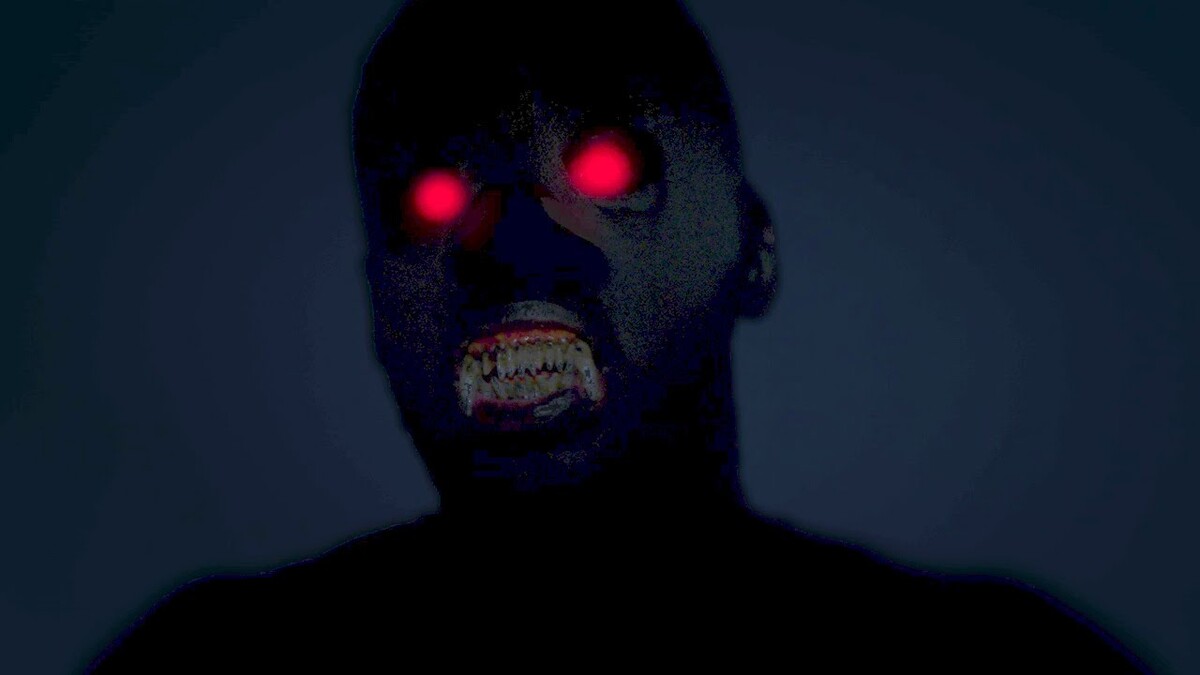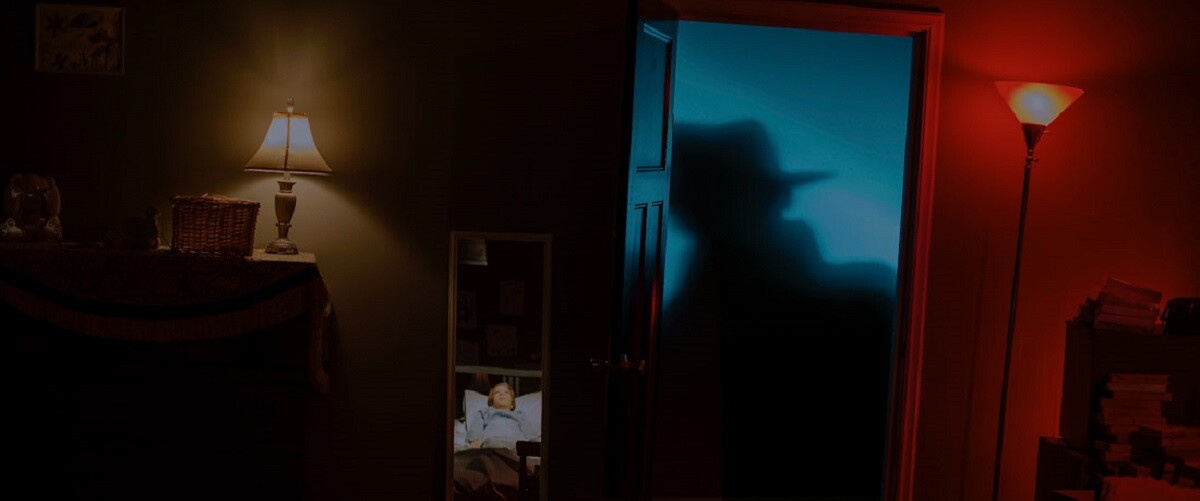Extreme outburst of fear, completely paralyzed body, sonic and visual hallucinations, feeling of suffocation and chest tightness.
Stiff muscles, lips sealed shut, and an unknown creature entering the apartment to hurt me. This is how many people describe the terrifying experience with sleep paralysis. "Something jumped in through the window and ran around the apartment. When I heard it, I woke up, but I couldn't get out of bed, I couldn't move, " Andrea (32) told us.
24-year-old Emma has had a similarly unpleasant episode. "For the first time, I had a feeling that a black silhouette was leaning over me, holding me and pushing me so tightly that I couldn't move," she described the moment of horror. The girls felt completely helpless. They felt that someone wanted to hurt them, but couldn't defend themselves in any way.
- Three menacing stories of young people who have experienced sleep paralysis.
- Why we can't move during sleep paralysis.
- How horror movies affect hallucinations during sleep paralysis.
- Why did Samuel stop sleeping on his back after a terrifying experience with sleep paralysis.
- How Andrea had three episodes of sleep paralysis in two weeks.
- How alcohol can increase the risk of sleep paralysis.

Hallucinations that disable your movement
Sleep paralysis is more common in humans than we'd think. Just try asking a few people around you about it. Maybe one of your friends will tell you about how he was lying in bed, his muscles were stiff, but his brain still didn't "shut down". He couldn't move and suddenly heard scary noises and felt that there was an unknown person in the room besides him. But he couldn't call for help.
"When you fall asleep, the muscles in your body paralyze. However, during sleep paralysis, muscle paralysis occurs, but the individual's brain is still conscious. As a result, the person cannot move and there's a level of horror about what's happening to him. Sleep paralysis is often accompanied by a feeling of pressure in the chest and difficulty in breathing, " psychologist Zuzana Šofraneková described the process of sleep paralysis.
In this state, one may have visions that are harmless. According to psychologist Šofraneková, from a professional point of view, we call them hypnagogic or false hallucinations and they also occur in people with good mental health.
However, many charlatans are looking for something supernatural and dark behind sleep paralysis through pseudosciences. In other words, "our mind's playing tricks on us". And the truth is, it can play in really scary ways, which Emma, Andrea and Samuel have told us about in detail.

He refused to sleep on his back ever since experiencing sleep paralysis
Samuel, 29, has shared with us a couple of sleep-paralysis experiences that triggered when he was 18 years old. He describes the first experience as significantly intense and scary.
"I remember sleeping on my back and waking up to the feeling that someone was coming to me from the side of the room. When I opened my eyes, I could not move a single part of my body. I experienced unreal fear and tension. I felt someone coming to hurt me, but I couldn't move and defend myself. Subsequently, I somehow powered through, kicked and moved around. The moment I started moving, it all stopped. There was no one in the room, of course," he told us.
Such thing occurred twice. In the second episode the sleep paralysis was less intense, he did not seek professional help. However, he still insists that he can't sleep on his back. He associates the given position with sleep paralysis, so he prefers to avoid it for fear that a similar horror might happen again.
 Janis Joplin: Story of the „Ugliest Man on Campus“ That Took the World by Storm
11. 11. 2021 14:22
Janis Joplin: Story of the „Ugliest Man on Campus“ That Took the World by Storm
11. 11. 2021 14:22
It doesn't have to be bad. The American Academy of Sleep Medicine (AASM) states that sleep paralysis is more common in people who sleep on their backs. However, its occurence is influenced by a number of other factors as well.
What influences the hypnagogic hallucinations people experience during an episode of sleep paralysis? According to the Chief Physician of the Department of Sleep Medicine at the National Institute of Mental Health, these "visions" can be influenced by daytime experiences, but also, exposure to scary movies at night. In addition, hypnagogic hallucinations, like dreams, sometimes recur, which is why some people see the same beings in sleep paralysis.
"Hypnagogic hallucinations are actually dream ideas that persist from REM sleep to wakefulness, so they can be influenced by daily experiences and are very variable. Even some dreams tend to repeat themselves. If the individual in question wants to find out why specific ideas and dreams come back to them, it's good to look for answers with the help of an expert psychotherapist, " she told Refresher.
He followed her through the skylight
While Samuel experienced sleep paralysis on the verge of adulthood, 32-year-old Andrea had her first experience with it five years ago. She experienced it a total of three times, in about two weeks. And it never happened to her again.
"At that time, I lived in an open attic apartment, where the living room, bedroom and kitchen were connected. I dreamt I left the skylight open. Something jumped inside through the window and ran around the apartment. When I heard it, I woke up, but I couldn't get out of bed, I couldn't move. I was just lying there, afraid it would jump at me," Andrea describes the moment of horror.
During the other two sleep paralysis incidents, she had a very similar experience. Only difference being that it seemed to her that the unknown creature did not get into the apartment through the skylight, but through the terrace. She doesn't remember how it ended. She assumes that it simply passed and then she just fell asleep.
"But I remember the feeling of helplessness when you're afraid you have someone or something in your apartment and you can't even move," she says. As Andrea's sister is a doctor, she explained that it was a sleep paralysis that could have been caused by stress. Similar episodes have never happened again, so, like Samuel, she did not seek professional help.

Seconds to minutes of horror
Sleep paralysis is one of the parasomnias, among which we include night terrors or sleepwalking. According to AASM, most people aged 14 to 17 have the first experience with sleep paralysis. The physician claims that such problems mainly concern younger people. Seniors only come to the sleep center exceptionally.
An episode of sleep paralysis usually lasts anywhere between a few seconds to a few minutes and is more of a sudden event. "In the case of sleep paralysis, there are alternating periods when episodes occur every night, even several times a night, and periods of rest, when these problems completely disappear," said the physician.
Stress paralysis can generally be caused by stress, lack of sleep, or poor sleep patterns. However, it may also be related to the use of certain medications, sleep-related seizures or bipolar disorder.
According to AASM, the chances increase if our relatives also suffered from it. However, soctor Dasgupta emphasizes that such cases are very rare and there is no evidence that sleep paralysis is hereditary, Healthline reports. At the same time, it is not a rarity at all. Roughly about 5% to 40% of people experience this condition.
Sleep paralysis occurs when a person is falling asleep or waking up. It is specific in that a person cannot move his limbs or talk in this state. According to the AASM, an intense effort to move or if someone touches the person sleeping during the episode can help to end sleep paralysis prematurely. The physician also agrees.
"Someone manages to interrupt the episode with maximum focus on their fingertips and try to move them. In some cases, the person in question is able to signal to the partner that he or she is in a state of sleep paralysis, for example by the means of making humming sounds and such. The partners learn to recognize these signals and by touching or speaking loudly they can help end the episode of sleep paralysis," she said.
You won't get a heart attack or choke on your own vomit
Some people fear that during sleep paralysis, they could have a heart attack or injure themselves in other ways. However, the physician said that she had never encountered such a case in her practice or in professional literature. Similarly, there is no danger of urinating or even vomiting during sleep paralysis and possibly suffocating.
"I consider it extremely unlikely. I haven't heard of a case in which the person couldn't retain urine or stool or vomit during paralysis. However, there is the so-called nocturnal enuresis, ie urination in sleep, which can also occur in adulthood, in all sleep stages. Nocturnal enuresis is mainly associated with NREM sleep and the person has to be predisposed to it," says the physician.
In general, there is no risk of physical harm or death in sleep paralysis. "Research has shown that sleep paralysis isn't dangerous. It doesn't cause physical damage to the body and no clinical deaths are known to this day, " says the sleep doctor Michael J. Breus.
However, it should be mentioned that episodes of sleep paralysis can lead to psychological problems. In such a case, according to the psychologist, it is appropriate to include psychotherapy in the treatment.
"Sleep paralysis is usually a very scary experience, especially in the first episodes, when the person in question doesn't know that it is only a sleep disorder. Such an experience can lead to anxiety or the development of anxiety disorder," said the physician and specified when it is appropriate to seek expert guidance.
"It is important, for example, if episodes of sleep paralysis occur too often and significantly worsen the quality of life. For example, they can lead to the person being afraid to go to bed in the evening and subsequently develop insomnia. I also recommend seeing a doctor if sleep paralysis is associated with sudden, uncontrollable sleepiness, in which case it could possibly be narcolepsy, " she said.
Psychologist can help the patient manage episodes of sleep paralysis, for example by psychoeducation focused on sleep hygiene - ie a sufficient length of sleep, avoiding the blue light, consumption of recommended and not recommended food or beverages and the like.
"It is definitely advisable to omit alcohol. Some patients with sleep disorders reach for alcohol with the knowledge that they fall asleep more easily. However, this is a very inappropriate strategy and, in addition to the risk of addiction, the likelihood of a paralysis episode increases. On the contrary, various relaxation techniques and meditation are appropriate," said the psychologist.

He pushed her, but she didn't feel anything
The third unpleasant experience with sleep paralysis was shared by 24-year-old Emma. She experienced the first episode in high school at the age of 17 and the second at the age of 21.
"It was one of the scariest experiences of mine. For the first time, I had the feeling that a black figure was leaning over me, holding me and pushing me so tightly that I couldn't move. However, I did not feel the touch. I was just laying there and it seemed to me that my eyes were open, I was not sleeping and the only thing I could do is look at what was happening to me," describes Emma.
She told us that her experience was one hundred percent authentic, and since she did not know at the time that it was just a hypnagogic hallucination, she was terrified.
She experienced the second episode at the age of 21. After a long time, she returned home and laid down on the bed in her room. For some reason, she couldn't fall asleep. At about three in the morning, she did a YouTube for a video with an audio frequency that is said to be dormant. Emma doesn't remember what exactly she was playing at the time, but she made it clear to us that it was a video of this type.
"I probably shouldn't have played that video. A moment after I fell asleep, something slammed the door in the room and a very small dwarf ran in from the hallway. But he was not a cute fairy-tale creature. On the contrary, he seemed incredibly disgusting. He ran past me and hid in a corner of the room under the table, where he remained," she said of her second horrifying episode.
"Something very strange happened over the next few minutes. I was terrified and filled with fear. I was literally paralyzed, couldn't even lift my head to see if I was dreaming or not. I just felt a little creature roar in the corner of the room, staring at me. When I recovered from this situation, I was extremely frightened and I did not fall asleep until the morning," she finished describing her experience.
Already after the first sleep paralysis, she studied professional information about this parasomnia and said that a visit to a doctor was not necessary in her case.
"I know it's not a serious diagnosis and it's harmless. Plus, it's only happened to me twice so far. When it happens to me again, there's nothing I can do. I try not to think about it and analyze it too much. You never know when it will come back," she concluded.









